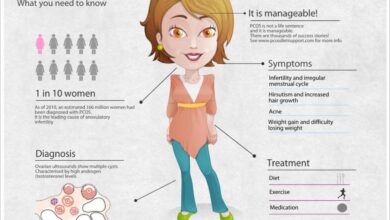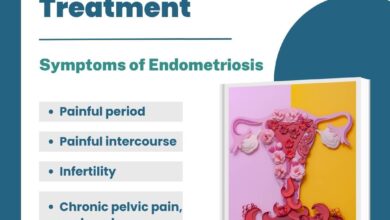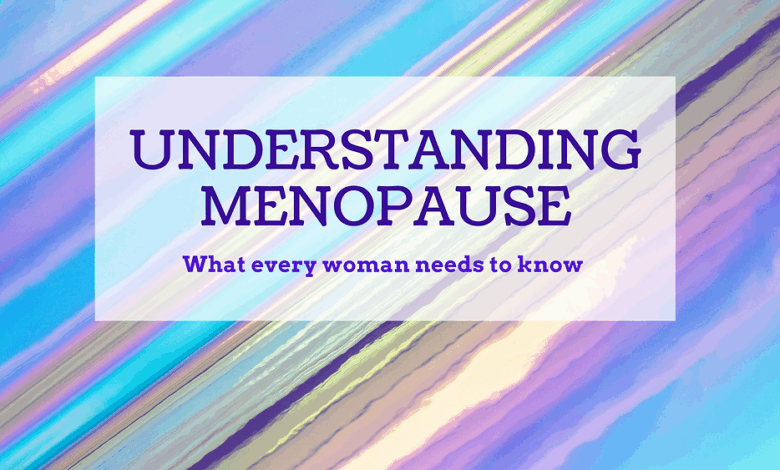
Reasons to thank menopause – this life transition often brings a surprising array of benefits. Beyond the physical changes, menopause can be a catalyst for profound personal growth, increased self-awareness, and stronger connections with yourself and others. This exploration delves into the unexpected advantages of this stage, offering a fresh perspective on what it truly means to navigate this chapter of life.
Reduced hormonal fluctuations often lead to improved mood, energy levels, and sleep. This shift in hormones can also bring increased emotional stability and reduced anxiety. The transition can also empower women to discover new passions, explore personal growth, and strengthen relationships. Furthermore, menopause can bring positive physical health changes, including a decreased risk of certain reproductive illnesses.
This new chapter often results in a deeper appreciation for long-term well-being, encouraging proactive health management. It’s a time for profound self-discovery and connection, both within oneself and with the community.
Benefits of Reduced Hormonal Fluctuations
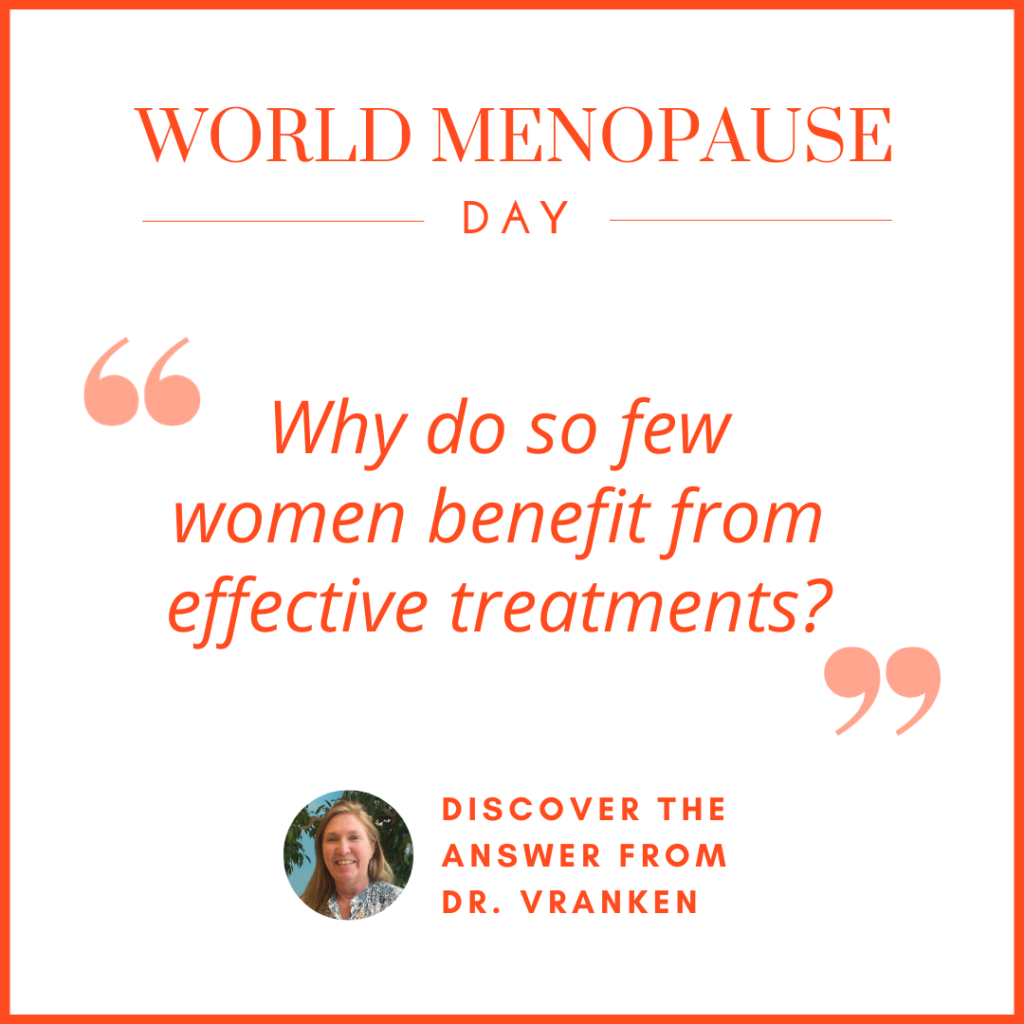
Navigating menopause often involves significant hormonal shifts. While these changes can present challenges, they also bring about a unique set of advantages. One of the most notable benefits is the reduction in hormonal fluctuations, which can lead to improved overall well-being and a more stable lifestyle. This newfound stability can manifest in various positive ways, impacting everything from mood to sleep patterns.Reduced hormonal fluctuations during menopause can significantly impact daily life, fostering a sense of calm and stability.
This decreased fluctuation allows for a more predictable and consistent internal environment, minimizing the emotional and physical highs and lows often experienced during pre-menopause.
Improved Mood and Emotional Stability
The hormonal rollercoaster of pre-menopause can often lead to mood swings, irritability, and anxiety. This is due to the unpredictable nature of fluctuating hormone levels. As hormone levels stabilize during menopause, emotional responses become more consistent and predictable. Women often report experiencing a decrease in anxiety and an increase in overall emotional well-being. This newfound stability is linked to a reduction in the physical and mental strain associated with hormonal imbalances.
Enhanced Energy Levels
Pre-menopause hormonal fluctuations can contribute to fatigue and decreased energy levels. The fluctuating estrogen and progesterone levels can impact the body’s ability to regulate energy production and utilization. With the decrease in hormonal fluctuations, women often report increased energy levels and improved stamina. This improvement can be attributed to a more consistent hormonal environment, allowing for better energy regulation.
Women may find themselves with increased motivation and capability to engage in daily activities and tasks.
Improved Sleep Quality
The impact of fluctuating hormones on sleep quality during pre-menopause is undeniable. The hormonal shifts can disrupt sleep cycles, leading to difficulty falling asleep, staying asleep, or experiencing restful sleep. During menopause, as hormonal fluctuations lessen, sleep patterns often improve. The consistent hormonal environment allows for better sleep regulation and can lead to more restful and restorative sleep, impacting overall well-being and cognitive function.
Feeling grateful for menopause? It’s totally understandable! Beyond the physical adjustments, there’s a newfound freedom. This newfound freedom, combined with the confidence to explore new fitness routines, often means you need a supportive sports bra. Check out the ultimate guide to sports bras for expert advice on finding the perfect fit for your activities.
Finding the right sports bra is key to enjoying that newfound energy and confidence, and honestly, that’s another reason to appreciate this life stage!
A Comparison of Hormonal Fluctuations
| Characteristic | Pre-Menopause (Hormonal Fluctuations) | Post-Menopause (Hormonal Stability) | Positive Effects |
|---|---|---|---|
| Estrogen Levels | Fluctuating, often high and low | Lower, but more stable | Reduced mood swings, improved sleep, increased energy |
| Progesterone Levels | Fluctuating, often high and low | Lower, but more stable | Improved sleep quality, reduced anxiety |
| Mood Swings | Frequent and significant | Less frequent and less intense | Increased emotional stability, reduced anxiety |
| Energy Levels | Varied, often lower | More consistent, potentially higher | Increased motivation, improved stamina |
| Sleep Quality | Disrupted, difficulty sleeping | Improved, more restful sleep | Reduced sleep disturbances, improved cognitive function |
Increased Self-Awareness and Confidence
Menopause, while often associated with physical changes, can also be a catalyst for profound personal growth. As hormonal fluctuations subside, women often experience a shift in perspective, allowing for a deeper understanding of their inner selves and a renewed sense of confidence. This newfound clarity can lead to a more fulfilling and authentic life, built on a stronger foundation of self-knowledge.Navigating this transition can be a journey of self-discovery, often resulting in a clearer understanding of one’s needs and desires.
As priorities shift, women may find themselves re-evaluating their values and goals, potentially leading to a more intentional approach to life. This often includes a heightened focus on inner well-being, recognizing the importance of self-care and nurturing the mind, body, and spirit.
Understanding Shifting Priorities and Values
Menopause can trigger a re-evaluation of life priorities. Women may reassess career goals, relationships, and personal ambitions, leading to a more intentional and purposeful life trajectory. This process of reflection often leads to a stronger sense of self-worth and a more authentic expression of one’s identity. For example, some women may choose to pursue hobbies, volunteer work, or other activities that resonate with their newfound values.
Others may shift focus to nurturing existing relationships or building new ones, prioritizing connection and support.
Enhanced Self-Care Practices
Self-care is not just a luxury; it’s a necessity for navigating the physical and emotional changes of menopause. Prioritizing activities that nourish the mind, body, and spirit becomes even more crucial during this life stage. This often translates into a deeper appreciation for mindfulness, relaxation techniques, and activities that promote overall well-being.
- Mindfulness Practices: Activities like meditation, deep breathing exercises, and yoga can help manage stress and anxiety, promoting a sense of calm and centeredness. These practices can improve emotional regulation and clarity, crucial during times of change.
- Healthy Diet: Maintaining a balanced diet rich in fruits, vegetables, and lean proteins is vital for physical and emotional well-being. Nutrition plays a significant role in managing mood swings and energy levels. This includes staying hydrated and incorporating foods that promote healthy hormone balance.
- Regular Exercise: Physical activity, whether it’s walking, swimming, or strength training, can significantly impact mood, energy levels, and overall health. Exercise releases endorphins, which have mood-boosting effects, and can help manage physical symptoms associated with menopause.
- Creative Outlets: Engaging in creative activities, such as painting, writing, music, or dancing, can provide a powerful outlet for self-expression and stress reduction. These activities often tap into a deeper sense of creativity and well-being, contributing to overall confidence.
Self-Discovery and Confidence Activities
Developing self-awareness and confidence during menopause involves actively engaging in activities that promote self-discovery. These activities should be tailored to individual preferences and needs, fostering a sense of empowerment and self-acceptance.
| Activity | Description | Potential Benefits |
|---|---|---|
| Journaling | Writing down thoughts, feelings, and experiences. | Increased self-awareness, emotional processing, and clarity of thought. |
| Mindfulness Meditation | Focusing on the present moment through breathwork and awareness. | Stress reduction, emotional regulation, and improved focus. |
| Creative Expression (e.g., painting, writing, music) | Exploring creativity through various artistic outlets. | Self-expression, stress relief, and enhanced sense of accomplishment. |
| Connecting with Others | Nurturing relationships and building supportive networks. | Emotional support, shared experiences, and a sense of belonging. |
| Setting Personal Goals | Identifying and working towards personal aspirations. | Increased motivation, a sense of purpose, and accomplishment. |
Opportunities for Personal Growth: Reasons To Thank Menopause
Menopause, often portrayed as a negative life transition, can surprisingly open doors to significant personal growth. It’s a time when women can shed societal expectations and embrace new possibilities, often with renewed clarity and focus. This period can be a catalyst for rediscovering passions, pursuing long-held dreams, and forging new paths. This renewed sense of self-discovery can manifest in various ways, from career changes to creative pursuits, and ultimately contribute to a more fulfilling and authentic life.This transformative period offers women a unique opportunity to re-evaluate their priorities and goals.
With hormonal fluctuations easing, women often experience a clearer sense of self and a greater capacity for self-reflection. This newfound clarity can inspire a shift in perspective, prompting them to explore new interests, rekindle old passions, or take on new challenges.
Rediscovering Passions and Pursuing New Interests
Women often find that as their bodies adjust to the hormonal shifts of menopause, their interests and priorities shift too. This can manifest in a renewed desire to pursue hobbies they once put on hold, or in a yearning to explore completely new areas of interest. Learning a new language, taking up painting, or joining a hiking club are just a few examples.
The freedom and clarity that comes with menopause can provide the perfect environment for these pursuits.
Honestly, there are surprising reasons to appreciate menopause. It’s a time of profound change, and like Arabelle Sicardi’s exploration of beauty as both terror and power in her piece arabelle sicardi beauty is terror and power , it’s about embracing a new, empowered self. This shift in perspective can lead to a deeper understanding of your own strength and beauty, ultimately fostering a newfound confidence and self-acceptance.
So, while it might feel challenging, it’s also a chance to truly thank menopause for the journey.
Potential Career Changes and Lifestyle Adjustments
Menopause can be a catalyst for career changes or lifestyle adjustments. Women may decide to pursue a different career path, perhaps one that better aligns with their current values and interests. This might involve starting a business, returning to school for a new qualification, or transitioning to a less demanding role. Lifestyle adjustments can include a greater emphasis on health and wellness, a shift to a more flexible work schedule, or simply more time for personal pursuits.
Exploring Creative Outlets
The reduced hormonal fluctuations associated with menopause can often lead to a surge in creativity. Women might find themselves drawn to creative outlets they previously lacked the time or energy to explore. This could involve writing, painting, sculpting, or any other form of artistic expression. This newfound creative energy can be a source of immense personal satisfaction and fulfillment.
Personal Stories of Growth During Menopause
Numerous women have shared stories of embracing opportunities for personal growth during menopause. One woman, Sarah, who had always dreamed of writing a novel, finally found the time and focus during menopause to pursue her passion. Another woman, Emily, leveraged her newfound clarity to transition from a corporate job to a more fulfilling role in community outreach. These examples demonstrate the profound impact menopause can have on personal development, enabling women to embrace a new chapter in their lives.
Avenues for Personal Development During Menopause
| Category | Examples |
|---|---|
| Creative Pursuits | Painting, writing, music, sculpting, photography |
| Personal Growth Activities | Meditation, yoga, mindfulness practices, journaling |
| Career Transitions | Starting a business, returning to school, pursuing a new career path, seeking a less demanding role |
| Lifestyle Adjustments | Focusing on health and wellness, adopting a more flexible work schedule, increasing time for hobbies and interests |
| Community Involvement | Volunteering, joining a club or group, taking on leadership roles |
Physical Health Advantages
The transition into menopause marks a significant shift in a woman’s health, and the end of menstruation brings about a plethora of positive changes. This period presents an opportunity for enhanced physical well-being, particularly regarding the reduction in risk of certain health concerns and the potential for improvements in bone density and cardiovascular health. Embracing lifestyle changes associated with this stage can lead to a better overall quality of life.Menopause’s impact on physical health extends beyond the cessation of menstruation.
The reduction in estrogen levels, while initially causing some temporary symptoms, ultimately contributes to a lower risk of several reproductive-related illnesses. This reduction in risk translates to improved overall health and well-being.
Reduced Risk of Reproductive-Related Illnesses
The decline in estrogen levels associated with menopause significantly decreases the risk of certain reproductive-related illnesses. This includes a substantial decrease in the risk of uterine and ovarian cancers. Furthermore, the absence of periods eliminates the possibility of developing conditions like endometriosis, fibroids, and pelvic inflammatory disease.
Improved Bone Density
Estrogen plays a crucial role in maintaining bone density. With the decline in estrogen during menopause, bone loss can accelerate, potentially increasing the risk of osteoporosis. However, proactive measures such as adequate calcium and vitamin D intake, regular weight-bearing exercise, and hormone therapy (when appropriate) can help mitigate these risks and maintain optimal bone health. Studies have shown that women who engage in regular weight-bearing activities like walking, jogging, or dancing can significantly improve bone density and reduce the likelihood of fractures.
Enhanced Cardiovascular Health
The reduction in estrogen levels during menopause can, in some cases, contribute to an increased risk of cardiovascular disease. However, proactive measures such as a balanced diet, regular exercise, and management of risk factors like high blood pressure and cholesterol can help counteract this. A diet rich in fruits, vegetables, and whole grains, coupled with regular physical activity, can promote cardiovascular health.
Maintaining a healthy weight and controlling blood pressure are also vital components of a comprehensive strategy for promoting cardiovascular health.
Lifestyle Changes for Better Overall Health
Healthy lifestyle choices are crucial for maximizing the physical benefits of menopause. This includes adopting a balanced diet rich in essential nutrients, engaging in regular physical activity, and prioritizing stress management techniques. For example, incorporating activities like yoga, meditation, or deep breathing exercises can help reduce stress and improve overall well-being.
Potential Health Advantages and Risk Reduction
| Potential Health Advantages | Related Risk Reduction |
|---|---|
| Reduced risk of uterine and ovarian cancers | Significant decrease in the risk of these cancers. |
| Reduced risk of endometriosis, fibroids, and pelvic inflammatory disease | Elimination of the risk associated with these conditions. |
| Improved bone density | Mitigation of osteoporosis risk and potential fracture prevention. |
| Improved cardiovascular health (with proactive measures) | Counteracting potential increased risk with lifestyle changes and management of risk factors. |
Strengthened Relationships and Community
Menopause, often perceived as a time of decline, can actually be a period of profound connection and renewed strength. As women navigate the hormonal shifts, they often find themselves more attuned to their emotions and needs, leading to a deeper understanding of themselves and others. This increased self-awareness can be a catalyst for stronger relationships and a richer sense of community.
The support and solidarity found in shared experiences can be invaluable during this life transition.The hormonal shifts of menopause can create a unique opportunity for women to connect on a deeper level with others going through similar experiences. Shared understanding and empathy fostered by this shared journey can lead to the formation of strong bonds and lasting friendships.
Menopause, while undeniably a transition, offers surprising perks. It’s a time of self-discovery and often, a renewed sense of empowerment. Taking a look at stories like Nick’s journey of recovery, nick 4 years in recovery , shows how resilience can blossom in unexpected ways. This period of life can bring a fresh perspective, and a deeper understanding of strength and fortitude, similar to what you might see in someone who has overcome a challenge.
Ultimately, there are definitely reasons to be grateful for the changes menopause brings.
This increased self-awareness allows women to be more present in their relationships, communicating more effectively and fostering a sense of belonging.
Finding Solidarity Through Shared Experience
Women often find strength and comfort in connecting with others who understand their unique challenges. Support groups provide a safe space to share experiences, receive encouragement, and learn from each other’s coping strategies. Online forums and communities dedicated to menopause offer a similar avenue for connection, allowing women to connect with a broader network of support from around the world.
These platforms can foster a sense of community and reduce feelings of isolation that some women might experience.
Examples of Support Groups and Communities
Numerous support groups and communities cater specifically to women experiencing menopause. Local women’s health centers frequently host support groups, providing a safe and supportive environment for women to share their experiences and learn from one another. Online platforms, such as Facebook groups or dedicated websites, also facilitate connections between women navigating menopause. These communities offer a space for women to share stories, ask questions, and offer advice, fostering a sense of solidarity.
Increased Self-Awareness and Meaningful Connections
Increased self-awareness during menopause often leads to more meaningful connections. Understanding one’s own emotional responses and needs allows for more empathetic communication with others. This understanding can translate into more fulfilling relationships with partners, children, and friends. As women become more comfortable with themselves, they are better equipped to build and maintain healthy relationships based on mutual respect and understanding.
Building and Strengthening Social Connections
The following table Artikels various ways women can build and strengthen social connections during menopause. These strategies can help cultivate a sense of community and support, fostering positive relationships and experiences.
| Activity | Description | Potential Benefits |
|---|---|---|
| Joining a Support Group | Participating in structured meetings with women facing similar challenges. | Shared experiences, support, and encouragement. |
| Attending Workshops or Seminars | Learning about menopause and related topics in a group setting. | Increased knowledge, self-awareness, and connections with like-minded individuals. |
| Connecting with Online Communities | Engaging in online forums or social media groups dedicated to menopause. | Broader network of support, access to diverse perspectives, and reduced feelings of isolation. |
| Participating in Social Activities | Engaging in hobbies, interests, or activities with friends or other women. | Strengthening existing friendships, developing new connections, and creating shared experiences. |
| Volunteering | Giving back to the community and connecting with others. | Sense of purpose, belonging, and opportunity to meet new people with shared values. |
Focus on Long-Term Well-being
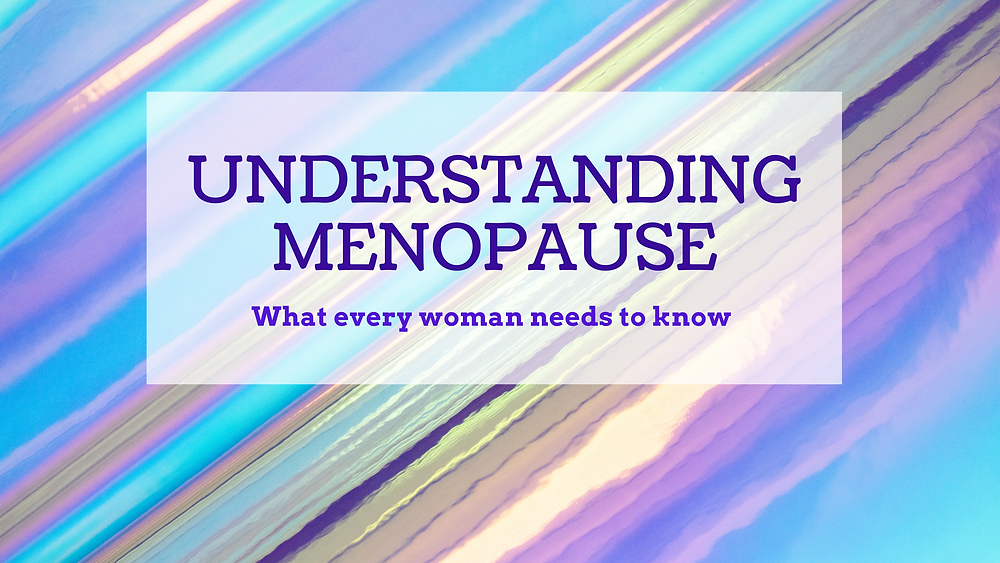
Menopause marks a significant transition, and while it brings about changes, it also presents a unique opportunity to prioritize long-term health. Understanding the difference between short-term adjustments and the lasting benefits of proactive choices is key to maximizing this pivotal life stage. This phase is not just about managing symptoms; it’s about building a healthier, more resilient future.Adjusting to menopause is often a journey of small, incremental changes.
Short-term discomfort, like hot flashes or sleep disturbances, might feel overwhelming at the time. However, a focus on long-term well-being allows us to view these temporary challenges as stepping stones toward a healthier future. By addressing these issues proactively and focusing on overall health, we can build a foundation for long-term vitality.
Comparing Short-Term and Long-Term Advantages
Short-term adjustments to menopausal symptoms, such as adopting a heat-reducing diet or using relaxation techniques, can provide immediate relief. However, the true rewards of menopause management lie in the long-term benefits. By prioritizing preventative healthcare and making healthy lifestyle choices now, women can significantly improve their overall health and quality of life for years to come. This approach shifts the focus from managing symptoms to cultivating lasting well-being.
Prioritizing Preventative Healthcare
Menopause is a critical time to proactively address potential health risks. This includes regular check-ups with a gynecologist to monitor hormone levels and discuss potential concerns, as well as screenings for conditions like osteoporosis, heart disease, and certain cancers. Regular check-ups are crucial to identify any issues early, potentially preventing long-term health problems. Early detection often leads to better outcomes and more effective treatments.
Improving Quality of Life Through Long-Term Health
Focusing on long-term health during menopause can significantly enhance quality of life. A healthy lifestyle, encompassing a balanced diet, regular exercise, and stress management techniques, fosters emotional well-being and physical vitality. This approach not only reduces the risk of chronic diseases but also boosts energy levels, improves sleep quality, and enhances mental clarity. Improved physical and mental well-being allows for greater enjoyment of life’s activities and relationships.
Strategies for Maintaining a Healthy Lifestyle
Building a sustainable healthy lifestyle involves several key strategies. A balanced diet rich in fruits, vegetables, and whole grains provides essential nutrients. Regular physical activity, such as walking, swimming, or yoga, helps maintain muscle mass, improves cardiovascular health, and reduces stress. Adequate sleep is vital for overall well-being, and stress management techniques, such as meditation or deep breathing exercises, can help reduce anxiety and promote relaxation.
These strategies, implemented consistently, contribute to long-term health and vitality.
Long-Term Benefits of Proactive Health Management, Reasons to thank menopause
| Aspect of Health | Long-Term Benefits of Proactive Management |
|---|---|
| Cardiovascular Health | Reduced risk of heart disease, stroke, and high blood pressure, contributing to a longer, healthier life. |
| Bone Health | Reduced risk of osteoporosis, maintaining bone density and preventing fractures. |
| Mental Well-being | Improved mood, reduced anxiety and depression, and enhanced cognitive function. |
| Energy Levels | Increased energy levels and vitality, enabling greater participation in daily activities. |
| Overall Quality of Life | Enhanced physical and mental well-being, leading to a more fulfilling and enjoyable life. |
Ultimate Conclusion
Menopause, often viewed as a challenging time, can surprisingly offer a wealth of opportunities for personal growth and well-being. From improved emotional stability to the potential for rediscovering passions, this life stage can be a catalyst for positive change. Embracing the changes and acknowledging the benefits of menopause can lead to a fulfilling and empowered experience. It’s a time for recognizing the strength within and celebrating the new possibilities that emerge.


